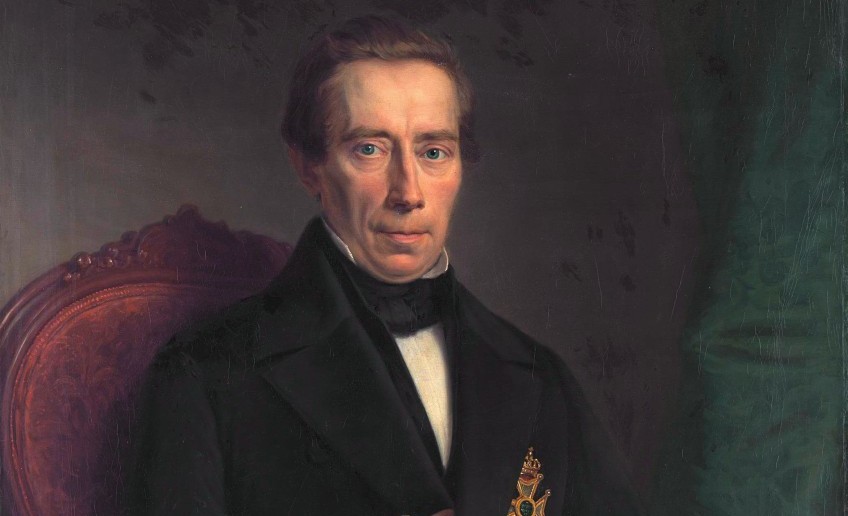Johan Thorbecke, Grondlegger Parlementaire Democratie
Johan Rudolph Thorbecke was a Dutch statesman who is widely regarded as the father of the Dutch parliamentary democracy. Born in Zwolle on January 14, 1798, Thorbecke was a brilliant scholar who made significant contributions to the development of modern Dutch society. He was a professor of law at the University of Leiden, where he taught constitutional law and political science. In this article, we will explore the life, works, and legacy of Johan Thorbecke, the man who laid the foundation for the parliamentary democracy in the Netherlands.
1. Introduction
Johan Thorbecke was a towering figure in Dutch politics during the 19th century. He was a visionary statesman who realized that the Netherlands needed a new political system that was more representative, transparent, and accountable. Thorbecke’s ideas and reforms laid the foundation for the parliamentary democracy that we have in the Netherlands today. In this article, we will explore the life and works of Johan Thorbecke, the grondlegger parlementaire democratie.
2. Early Life and Education
Johan Thorbecke was born on January 14, 1798, in Zwolle, a city in the eastern part of the Netherlands. His father, Harmen Thorbecke, was a lawyer, and his mother, Geertruid van Marle, was a homemaker. Johan Thorbecke was the second of five children. He was a brilliant student who excelled in his studies. He attended the Latin school in Zwolle and then went on to study at the University of Amsterdam, where he obtained his degree in law in 1820.
3. Career and Political Philosophy
After completing his studies, Johan Thorbecke worked as a lawyer in Amsterdam. He also began to write and publish articles on politics and constitutional law. Thorbecke believed that the Netherlands needed a new political system that was more representative, transparent, and accountable. He argued that the existing system, which was based on the separation of powers, was outdated and undemocratic. Thorbecke believed that the people should have a greater say in how they were governed, and that the government should be accountable to the people.
4. The Constitution of 1848
In 1848, Johan Thorbecke was appointed to a commission that was tasked with revising the Dutch constitution. Thorbecke’s ideas and proposals formed the basis of the new constitution, which was adopted later that year. The new constitution created a parliamentary system of government in which the people had the power to elect their representatives to the Lower House of Parliament. The Upper House of Parliament was appointed by the King. The new constitution also established the principle of ministerial responsibility, which meant that the government was accountable to Parliament.
5. Legacy
Johan Thorbecke’s ideas and reforms had a profound impact on Dutch society. He laid the foundation for the parliamentary democracy that we have in the Netherlands today. Thorbecke’s ideas and reforms influenced political thinkers and statesmen around the world. His legacy can be seen in the democratic systems of many countries today.
6. Conclusion
In conclusion, Johan Thorbecke was a visionary statesman who laid the foundation for the parliamentary democracy in the Netherlands. His ideas and reforms were ahead of their time, and they continue to influence political thought and practice around the world. Johan Thorbecke is a testament to the power of ideas, and to the importance of political courage and vision.
FAQs:
1. What was Johan Thorbecke’s contribution to Dutch politics?
Johan Thorbecke is considered the father of the Dutch parliamentary democracy. He laid the foundation for the modern democratic system that we have in the Netherlands today.
2. When was Johan Thorbecke born?
Johan Thorbecke was born on January 14, 1798, in Zwolle, the Netherlands.
3. What was Johan Thorbecke’s profession?
Johan Thorbecke was a professor of law at the University of Leiden and a lawyer in Amsterdam.
4. What was the Constitution of 1848?
The Constitution of 1848 was a new constitution that established a parliamentary system of government in the Netherlands. It created a system in which the people had the power to elect their representatives to the Lower House of Parliament.
5. What is Johan Thorbecke’s legacy?
Johan Thorbecke’s ideas and reforms had a profound impact on Dutch society. He laid the foundation for the parliamentary democracy that we have in the Netherlands today. His legacy can be seen in the democratic systems of many countries today.
